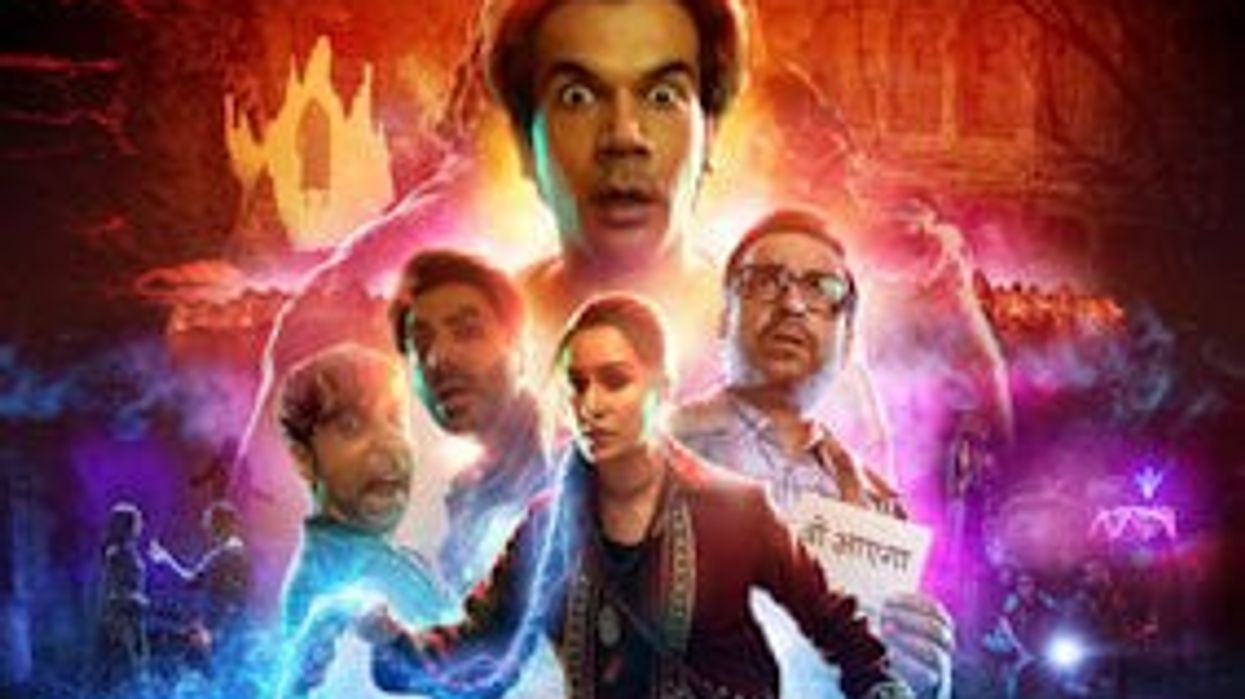THE Maddock Films horror comedy universe is known for highlighting societal issues, and in Stree 2, the latest addition, Sarkata serves as a representation of the flaws within patriarchy, according to writer Niren Bhatt.
Bhatt, who left a lucrative corporate career in 2007 to pursue a passion for screenwriting, is thrilled with the success of Stree 2, although he admits that the overwhelming response has been "a bit crazy."
"People have been eagerly anticipating this film for six years, but we didn't focus too much on the expectations," Bhatt said, referring to the highly awaited sequel to the 2018 hit Stree, which premiered on August 15 and is approaching the ₹500 crore (£45.1 million) mark globally.
Bhatt, who also penned other successful films in the franchise like Bhediya and Munjya, explained that each character in these films symbolises different societal themes.
"While some viewers feel there's too much humour and not enough horror, or vice versa, these aren't typical horror movies. Our ghosts are metaphors for societal flaws. Sarkata, for example, embodies the most twisted aspects of patriarchy," he noted.
He added that the character of Stree symbolises matriarchy rather than being a traditional witch, while Bhediya represents the protector of the forests.
"We've designed these characters to reflect real societal issues rather than supernatural phenomena," Bhatt told PTI in an interview.
While Stree revolved around a female ghost, who was wronged in her mortal life, its follow-up focuses on a headless villain called Sarkata with a connection to the eponymous character.
Directed by Amar Kaushik, the new film brings back the original star cast of Rajkummar Rao, Shraddha Kapoor, Abhishek Banerjee, Pankaj Tripathi, and Aparshakti Khurana.
Stree 2, which follows Sarkata abducting women with an independent voice, hits harder in the backdrop of the Kolkata alleged rape-murder and the Justice Hema Committee report on women's exploitation in Malayalam cinema.
Bhatt, who keeps his ear close to the ground, said it's unfortunate that these incidents have become a norm.
"This happens every day. It's just this one incident that has been highlighted by the media and we are so shaken about. I follow current trends very closely. You know this is happening, but you try to think about something else tomorrow because you also have a life to lead and you can't always think that you are living in such horrible times. But it all keeps playing in the back of our mind."
In one of the key scenes in Stree 2, Sarkata demolishes the statue of Stree, the guardian of Chanderi, to declare the beginning of his reign.
The writer, whose credits also include hit Gujarati films Bey Yaar, Wrong Side Raju, as well as TV shows Taarak Mehta Ka Ooltah Chashmah, said he wanted to recreate the 2003 incident in Baghdad where civilians and US forces destroyed a large statue of Saddam Hussein to mark the end of his rule in Iraq.
"It's a famous metaphor... Whenever there is a change of regime, the first thing they do is demolish the very symbols of the establishment. It was a similar situation in Bangladesh recently," he said referring to how protesters in Bangladesh destroyed a statue of founder Sheikh Mujibur after his daughter Sheikh Hasina resigned as prime minister and fled the country amid political unrest.
Not just politics, Bhatt's writing is filled with pop culture nostalgia too. Be it a hat-tip to Marvel supervillain Thanos in Bala or a reference to Bryan Cranston's "I am the danger" one-liner from Breaking Bad and Rasode Mein Kaun Tha meme from Saath Nibhana Saathiya in Bhediya.
"I love using pop culture references. The story and screenplay has to be there and I try the line that brings the reference has to go with the character and scene. It makes sense and it also makes those people laugh who get the reference."
Stree 2 is no different. There are hat-tips to Harry Potter, Star Wars, Mission: Impossible, Avengers, King Arthur, and even Sufi philosopher Rumi.
"I have many favourites but in Stree 2 the one I enjoyed the most was Sahi aur galat ke pare ek maidaan hai wahan milti hai woh," the writer said, referring to Rao's dialogue when his friends ask him where does he meet the mysterious woman he's in love with.
One can't forget Khurana singing Soft Chitty, the hilarious Indian version of Soft Kitty from The Big Bang Theory, and Bhatt, a fan of the American show, said he had fun sneaking that reference.
"Soft Kitty, Warm Kitty is an integral part of my life. I'm a big fan of the show. My whole family is crazy about it. Amar also loves it."
With over a week of its release, both 'ghosts' and cameos – by Akshay Kumar and Varun Dhawan as Bhediya – are out of the bag.
But Bhatt said he didn't write a key character with Kumar in mind. Kaushik, who is producing the superstar's upcoming film Sky Force, approached Kumar and he agreed.
"It was sheer madness. He did something we grew up watching him do in films like Hera Pheri and Khiladi. His trademark humour."
How did he come up with Tu Bhediya hai, Animal mat ban, a line with a clear reference to the controversial Ranbir Kapoor-starrer Animal?
The writer said he didn't; it was Banerjee's improvisation.
"He is a crazy guy, he can come up with anything at any time. Some random but very funny lines."
Love for Shah Rukh Khan is also a constant in Stree films and Bhatt said there's a "great temptation" to include such tributes in the script.
"Who doesn't love Shah Rukh Khan? This film has become such a huge hit, we hope we get to work with him some time soon."
With Stree 3, Bhediya 2, Munjya 2, and Thama (previously titled Vampires of Vijay Nagar), there is "more fun" to be had in the Maddock Films universe.
But Bhatt said he cannot reveal much at this point. (PTI)




